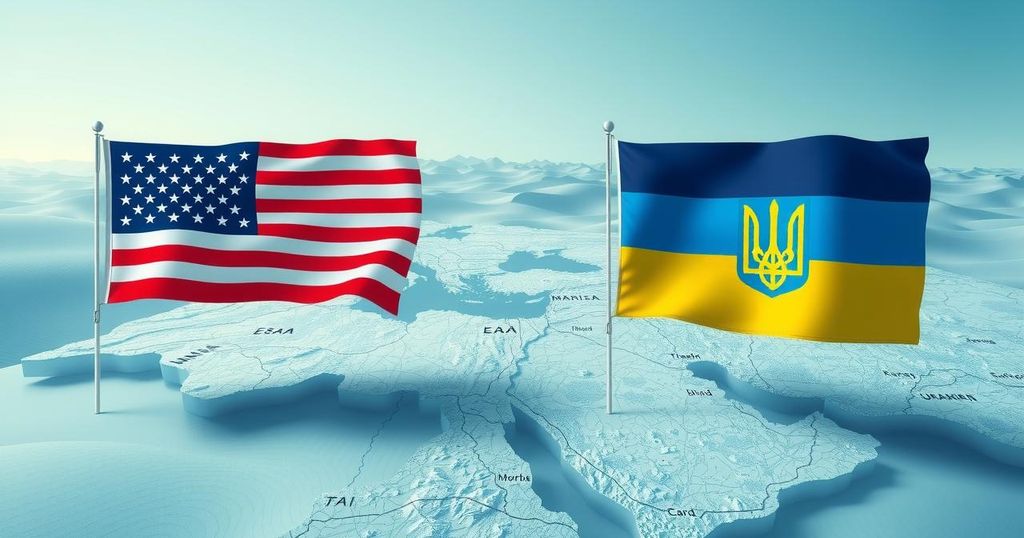U.S. and Ukraine Discuss Potential Cease-Fire in Saudi Talks Ahead of Russia Meeting

The U.S. and Ukraine engaged in pivotal talks in Saudi Arabia aimed at negotiating a cease-fire with Russia, characterized by constructive dialogue. Ukrainian officials expressed hope for peace despite cautious expectations for outcomes. The following Russian negotiations are crucial, amid escalating violence and unclear agreements from previous discussions.
On March 24, U.S. and Ukrainian officials wrapped up discussions in Saudi Arabia prior to an upcoming meeting with Russian representatives aimed at negotiating a cease-fire in the Ukraine conflict. Although the U.S. team did not provide immediate feedback, Ukrainian Defense Minister Rustem Umerov characterized the talks as constructive and focused on critical areas, including energy concerns. He reiterated President Volodymyr Zelenskyy’s aspiration for a just and lasting peace in Ukraine and Europe.
The Riyadh talks represent a key development in U.S.-led attempts to establish a cease-fire, previously hindered by delays between negotiation sessions. Moreover, having all parties convened in one space could expedite progress. While U.S. and Russian officials are set to meet subsequently, there is limited expectation for significant breakthroughs during these discussions. Zelenskyy noted the constructive nature of the ongoing talks but stressed the need for direct orders from Russian President Vladimir Putin to halt military actions.
Despite some U.S. officials expressing optimism, political analysts caution against overestimating potential outcomes, suggesting that the best possible result could simply be a temporary pause in hostilities. Kremlin spokesman Dmitry Peskov warned against high expectations, emphasizing the need for thorough negotiations. The process is expected to follow a shuttle diplomacy model, with separate meetings between representatives of the U.S. and each nation.
Historical context is relevant, as previous cease-fire negotiations, like those in Gaza, took considerable time to yield results. There have been contradictory reports regarding agreements, particularly a proposed 30-day cease-fire which was later limited in scope by Russian interpretations. Confusion also arose from discussions on U.S. security guarantees concerning Ukrainian nuclear facilities.
U.S. envoy Steve Witkoff indicated that the current talks might include a focus on cease-fire agreements related to the Black Sea and the safe transportation of ships, emphasizing a hope for a comprehensive cease-fire. Despite Witkoff’s assertions that Putin may seek peace, these claims contrast with Ukrainian and European perspectives, especially given the recent escalation of attacks by Russian forces on civilian areas in Ukraine, which underscores the urgency of the negotiations.
In summary, the recent U.S.-Ukraine talks in Saudi Arabia aimed to pave the way for further negotiations with Russia regarding a cease-fire. While initial discussions showed promise and constructive dialogue, observers warn that significant breakthroughs are unlikely. The complex history of past negotiations and recent escalations in hostilities reflect the difficulties ahead in achieving a lasting peace in the region. Continued diplomatic efforts will be crucial in addressing the ongoing conflict.
Original Source: www.eurasiareview.com








